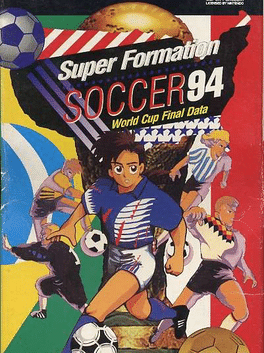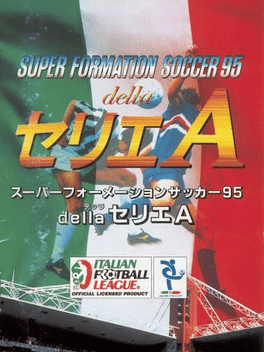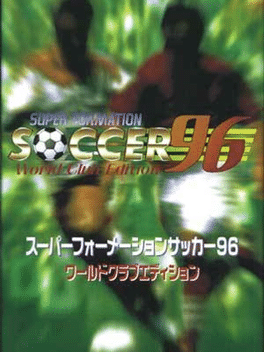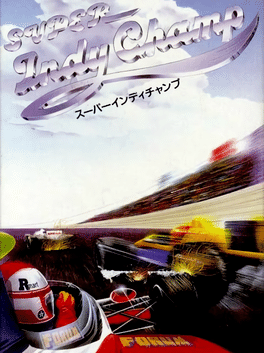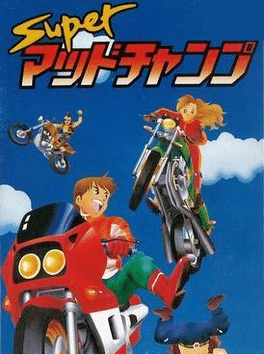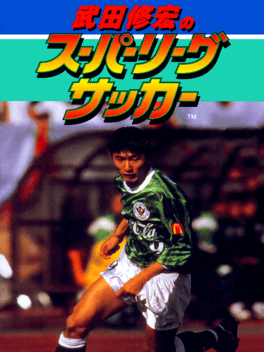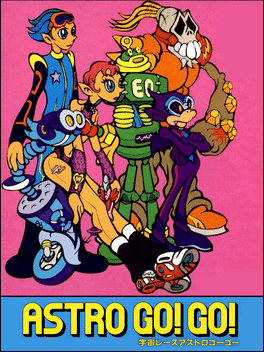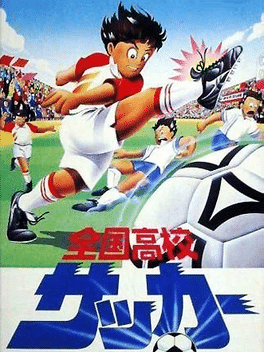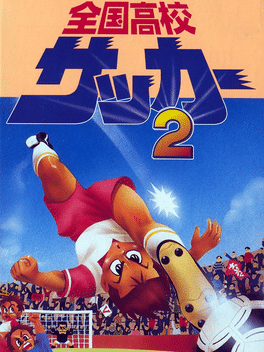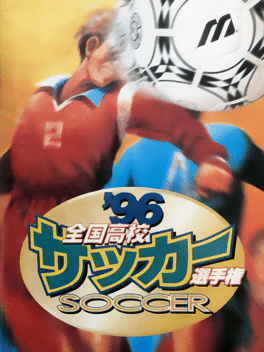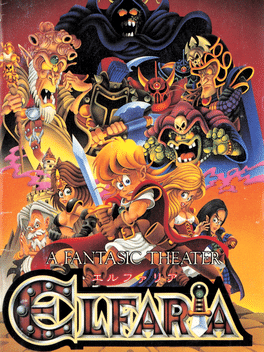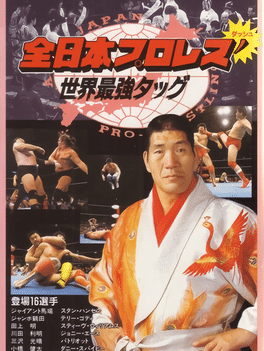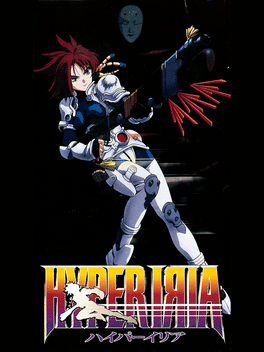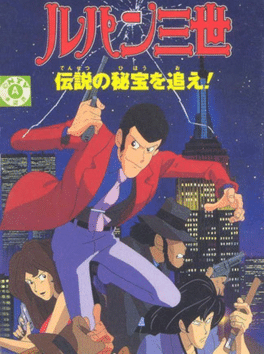Most Popular Super Famicom Games - Page 18
-
Super Formation Soccer 94: World Cup Final Data
1994
Super Formation Soccer 94: World Cup Final Data is a Sports game, developed and published by Human Entertainment, which was released in Japan in 1994. It's an updated version of the Original Super Formation Soccer '94 World Cup Edition. -
Super Formation Soccer 95: della Serie A
1995
Super Formation Soccer 95: della Serie A is a Sports game, developed and published by Human Entertainment, which was released in Japan in 1995. -
Super Formation Soccer 96: World Club Edition
1996
Super Formation Soccer 96: World Club Edition is a Sports game, developed and published by Human Entertainment, which was released in Japan in 1996. -
Super Indy Champ
1994
Super Indy Champ
1994
Super Indy Champ is a Racing game, developed by Open System and published by Forum, which was released in Japan in 1994. -
Super Mad Champ
1995
Super Mad Champ
1995
Super Mad Champ is a Racing game, developed by Givro and published by Tsukuda Original, which was released in Japan in 1995. -
Takeda Nobuhiro no Super League Soccer
1994
Takeda Nobuhiro no Super League Soccer ("Nobuhiro Takeda's Super League Soccer") is a soccer simulation video game licensed/endorsed by Takeda Nobuhiro, published by Jaleco Entertainment for the Super Famicom console, which was released exclusively in Japan in 1994. This game is a sequel to Takeda Nobuhiro no Super Cup Soccer. It features club teams based on the top division of Japan Professional Football League J. League Division 1 (though unlicensed) instead of national teams. While it kept largely the same structure of the original game, some new options were added. -
Ultra League: Moero! Soccer Daikessen!!
1995
Ultra League: Moero! Soccer Daikessen!! (lit. Ultra League Moero! Roll-up Soccer!!) is a 1995 Japan-exclusive soccer-based video game released for the Super Famicom. The game features the Japanese super hero Ultraman, among other monsters and aliens. -
Uchuu Race: Astro Go! Go!
1994
Uchuu Race: Astro Go! Go! is a Racing game, developed by KAZe and published by Meldac, which was released in Japan in 1994. -
Wondrous Magic
1993
Wondrous Magic
1993
Wondrous Magic is a Role-Playing game, developed by System Sacom and published by ASCII Entertainment, which was released in Japan in 1993. -
Zenkoku Koukou Soccer
1994
Zenkoku Koukou Soccer is a Sports game, developed by Affect and published by Yojigen, which was released in Japan in 1994. -
Zenkoku Koukou Soccer 2
1995
Zenkoku Koukou Soccer 2 is a Sports game, developed by Syscom and published by Yojigen, which was released in Japan in 1995. -
'96 Zenkoku Koukou Soccer Senshuken
1996
The video game features teams from the Japanese high schools from the islands in addition to the mainland. One of the more notable players in the game is Shunsuke Nakamura who played for Tōkō Gakuen High School. The game has some similarities with Hat Trick Hero, Aoki Densetsu Shoot! or any other soccer game with the left-right perspective, and Top Striker or Libero Grande because of the ability to play as just one player, instead of controlling the whole team. This feature would serve as a model for the "career mode" provided in most modern EA Sports games. There were many other improvements over the two original versions. One of the most important being the availability of creating and customizing an own character/football player and training with the instructor before each match, among other options. Coaches give out verbal reports that range between "perfect" and "needs improvement." This game is a sequel to Zenkoku Kōkō Soccer and Zenkoku Kōkō Soccer 2. -
Zico Soccer
1994
Zico Soccer
1994
Zico Soccer is a football management video game that allows players to become the head coach of an international football team; it was named after the soccer legend Zico (also known as the White Pelé). -
Elfaria
1993
Elfaria
1993
Elfaria is a Role-Playing game, developed by RED Entertainment and published by Hudson, which was released in Japan in 1993. -
Kunio's Oden
1994
Kunio's Oden
1994
When Misako realizes her favorite Oden shop is going out of business, she comes to Kunio in helps he can save the business from going bankrupt. Kunio must awaken his appetite to save the Oden shop. -
Bishoujo Senshi Sailor Moon S: Kurukkurin
1995
The Sailor Soldiers must collect the talisman before the Dark Kingdom gets them! Take on your friend in this exciting puzzle game based on the famous animation! -
Bishoujo Senshi Sailor Moon Super S: Zenin Sanka!! Shuyaku Soudatsusen
1996
This game is the sequel and an update to Sailor Moon S: Jougai Rantou!? Shuyaku Soudatsusen. The Sailor Senshi are fighting to choose a new leader. After defeating an enemy, Sailor Moon was teased by Sailor Chibi Moon and Sailor Mars, who called her undependable. The rest of the Sailor Senshi then decided to have a contest to choose a new leader. This game is based on the popular Anime series "Sailor Moon" and was released only for the japanese Super Famicom. -
Zen-Nippon Pro Wrestling': Sekai Saikyou Tag
1993
An updated version of Zen Nihon Pro Wrestling, Dash updates the character roster and adds minor cosmetic touches to the mix such as wrestler introductions and new character artwork. The biggest addition however is the inclusion of a 4-player royal rumble mode and the ability to perform team-up moves in the tag matches. The game casts you as a wrestler of your choice in the official Zen Nihon Pro Wrestling league and pits you against the other featured wrestlers in grappling matches. As in the original you get to pick between several game modes including: Tournament, Championship (single or tag) Vs, Team (with the new 4-player variant) and Training. -
Hyper Iria
1995
Hyper Iria
1995
Iria is the story of a girl and the Alien being she loves to hate. The series begins with her brother, Gren, taking a job. He is a bounty hunter, and one well known for his incredible skill. Iria, being a skilled apprentice bounty hunter herself, tags along. What is the job, one might ask. It is to find out what has happened to the crew and cargo of a Space Station. Needless to say, nothing is as it seems, and the war between Iria and Zeiram begins in earnest. -
Lupin III: Densetsu no Hihou wo Oe!
1995
Lupin, Jigen, and Goemon are at their Manhattan hideout plotting their next caper, when suddenly a large masked man bursts in. The man is escorted by a woman who proceeds to tell Lupin and the others that Fujiko has been kidnapped and is being held prisoner at one of the skyscrapers downtown. In order to get her back they must find the fountain of youth. When the two leave, Lupin decides to go and rescue Fujiko himself and sets off to save her. When arrives he discovers that the building is crawling with police, all under the command of Zenigata... so Lupin must enter through the building's ventilation to find Fujiko.
